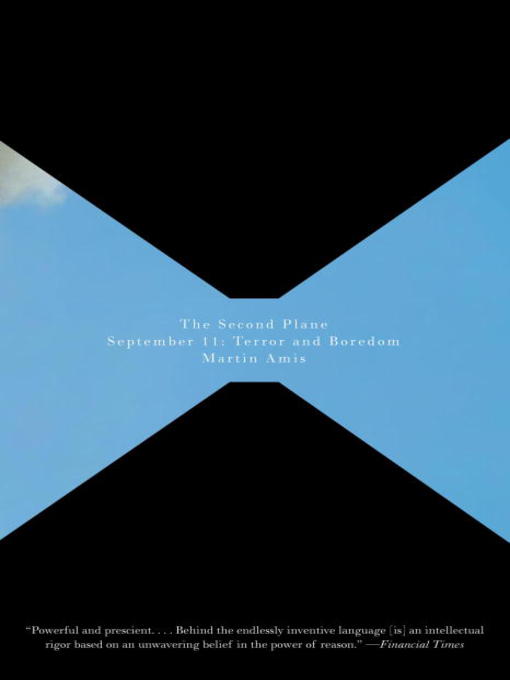
The Second Plane
September 11: Terror and Boredom
کتاب های مرتبط
- اطلاعات
- نقد و بررسی
- دیدگاه کاربران
نقد و بررسی

February 18, 2008
These chronologically ordered essays and stories on the September 11 attacks proceed from initial bewilderment to coruscating contempt for radical Islam. Novelist Amis (House of Meetings
) rejects all religious belief as “without reason and without dignity” and condemns “Islamism” as an especially baleful variant. Amis attacks Islamism's tenets as “nti-Semitic, anti-liberal, anti-individualist, anti-democratic” and characterizes its adherents, from founding ideologue Sayyid Qutb to the ordinary suicide bomber, as sexually frustrated misogynists entranced by a “cult of death.” He also takes swipes at Bush and the Iraq war, which he describes as botched and tragically counterproductive, if well intentioned, but scorns those who draw a moral equivalence between Western misdeeds and the jihadist agenda. Amis's concerns are cultural and aesthetic as well as existential: terrorism threatens a reign of “boredom” in the guise of tedious airport security protocols, pedantic conspiracy theories and the dogma-shackled “dependent mind” fostered by Islamist theocracy. As much as Amis's opinions are scathing, blunt and occasionally strident, his prose is subtle, elegant and witty—and certainly never boring.

May 1, 2008
Amis has a reputation, well deserved, for being an intellectual provocateur. This reputation will only grow with the publication of these latest musings on life in what he calls "the Age of Vanished Normalcy." As John Updike, Ian McEwan, Salman Rushdie, and others have before him, Amis seeks to make sense of a world in which passenger airplanes are used as weapons of destruction and religious fanaticism has muscled out reasoned deliberation. His critique of Islamism may seem enlightened to some, imbecilic to others. Amis rejects the chimera of moral equivalence between modern, secular civilization and radical Islamic jihadists. He argues that he is not Islamophobic but rather Islamismophobicthat is, opposed to militant Islam. Amis contends that the West shares no common discourse with jihadism and contrasts the Western, secular mind of intellectual curiosity with the strident, noncurious mind of the likes of Mohamed Atta. The most impressive of these 14 pieces is "Terror and Boredom: The Dependent Mind," in which Amis mounts his own crusade against religious violence and secular triumphalism. Amis is intentionally and controversially combative in this work, which makes it essential reading. Recommended for all libraries.Stephen K. Shaw, Northwest Nazarene Univ., Nampa, ID
Copyright 2008 Library Journal, LLC Used with permission.

February 15, 2008
Amis is famously audacious, sardonic, and excoriating. But in this bracing and corrective collection of intense and perceptive responses to the terrorist attacks on September 11, 2001 (including anobjection to the reductiveness of 9/11), Amis is doing far more than performing literary pyrotechnics or playing provocateur. Beginning with The Second Planeoriginally published a week after the catastrophe and utterly unnerving in itsvivid sense of menacehe tracks the shock waves of that world-altering day in a dozen galvanizing essays. Amis brings the Iraq War and its appalling consequencesinto sharp focus, presents a blazing indictment of religion, and provides a striking analysis of the diabolical symbiosis between the superterror of suicide-mass murder and the superboredom of societies bereft of independent thought. If Amis verges on generalizations in his highly charged commentary, he focuses tightly, even empathically, on individuals in hisarresting profile of Sayyid Qutb, the father of Islamism; in his double-barreled reports onTony Blair andGeorge W. Bush; and intwo wrenchingly satirical short stories, one narrated by Muhammad Atta.Amis, whose most recent novel is the triumphant House of Meetings (2006), writes with vehemence, daring, and verve because he schools himself in harsh truths, and because he cares.(Reprinted with permission of Booklist, copyright 2008, American Library Association.)

























دیدگاه کاربران